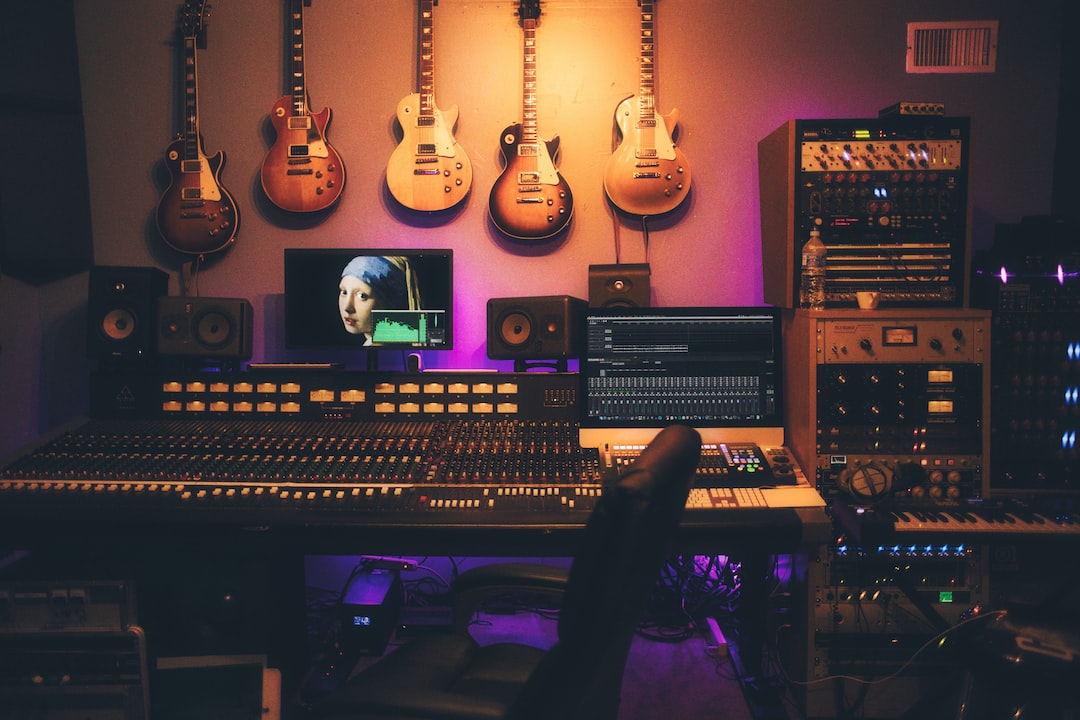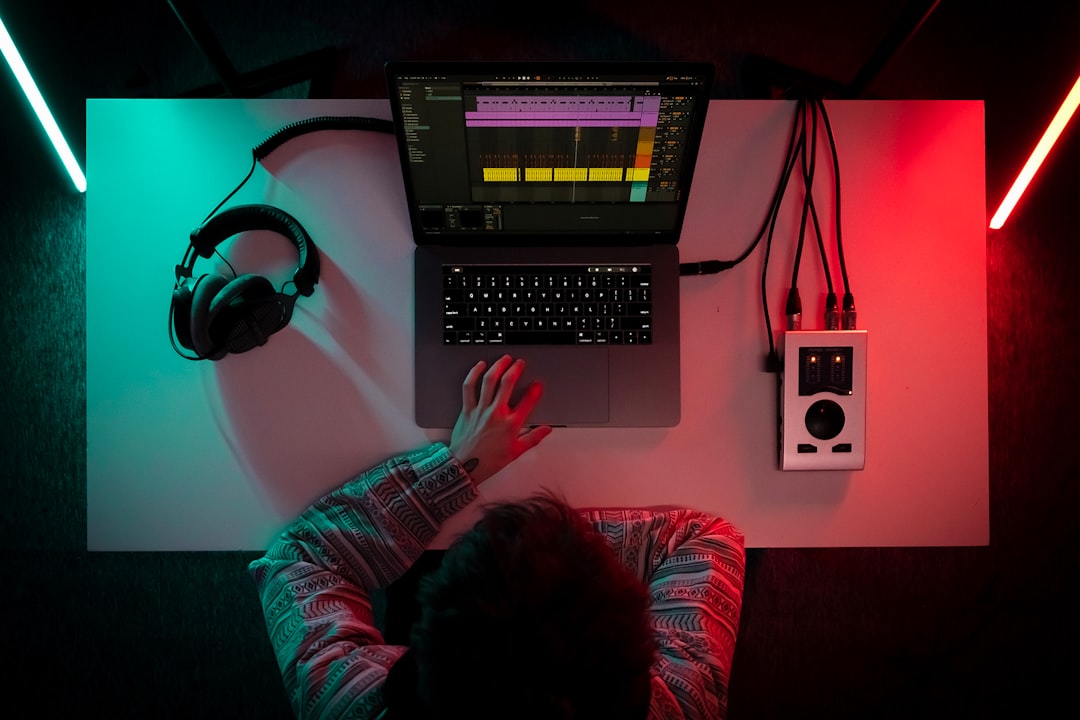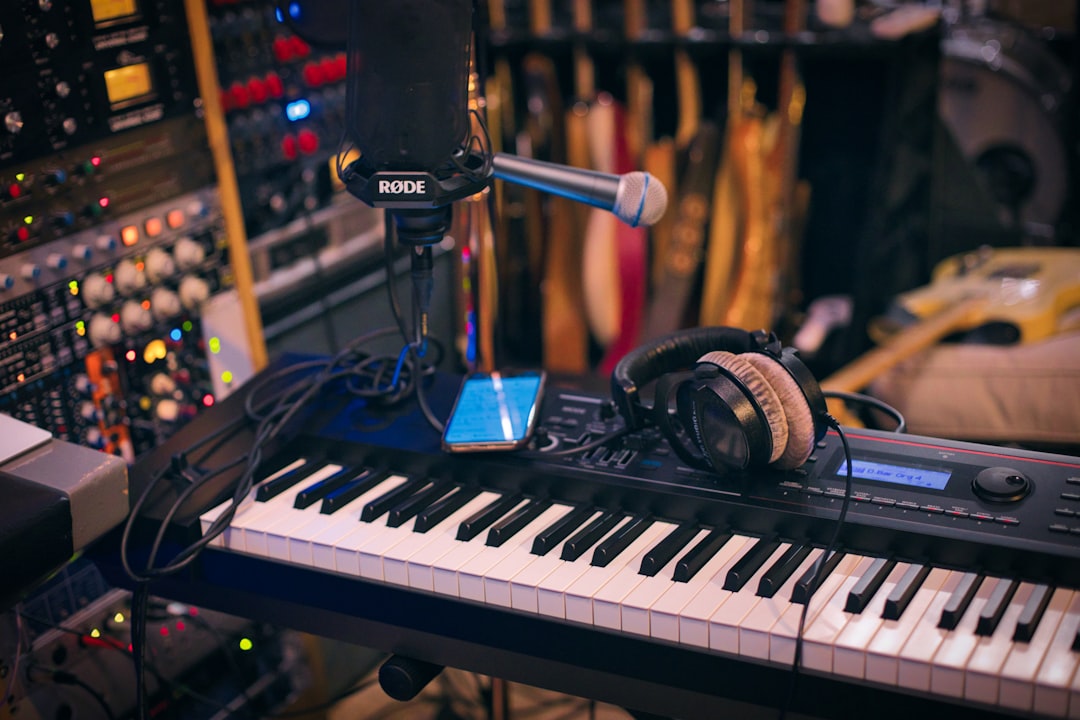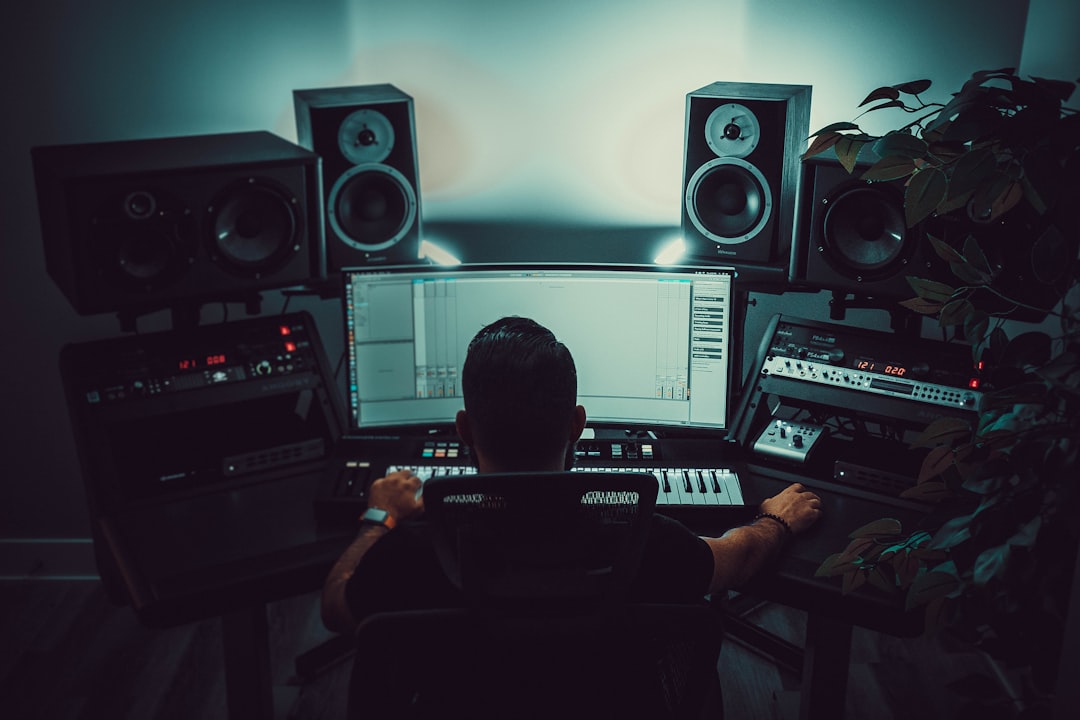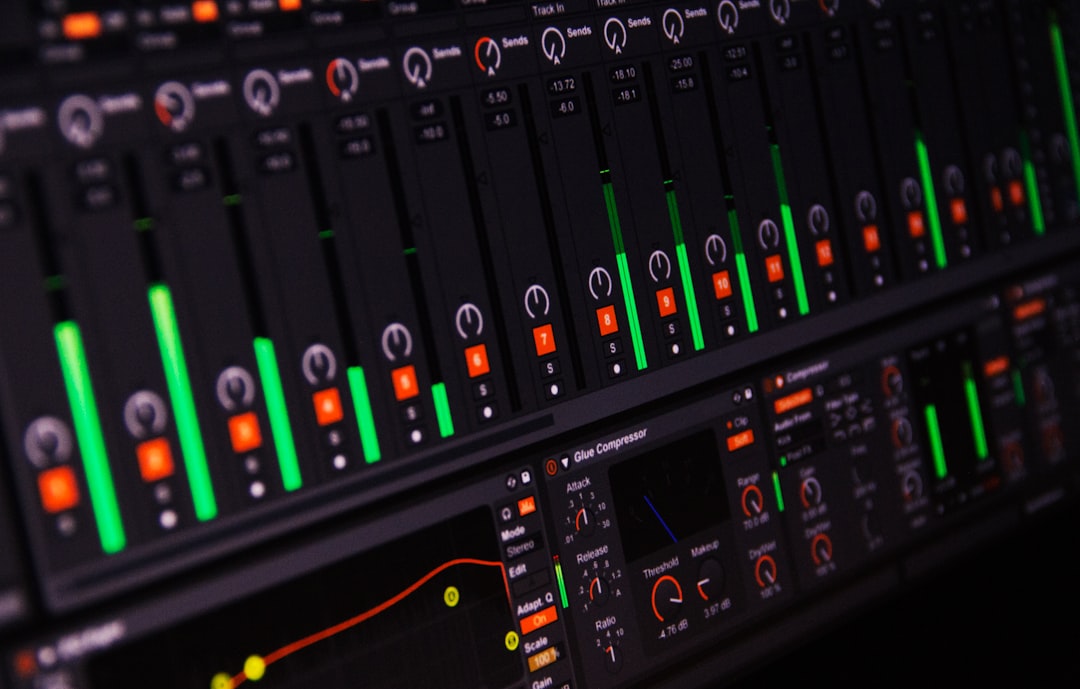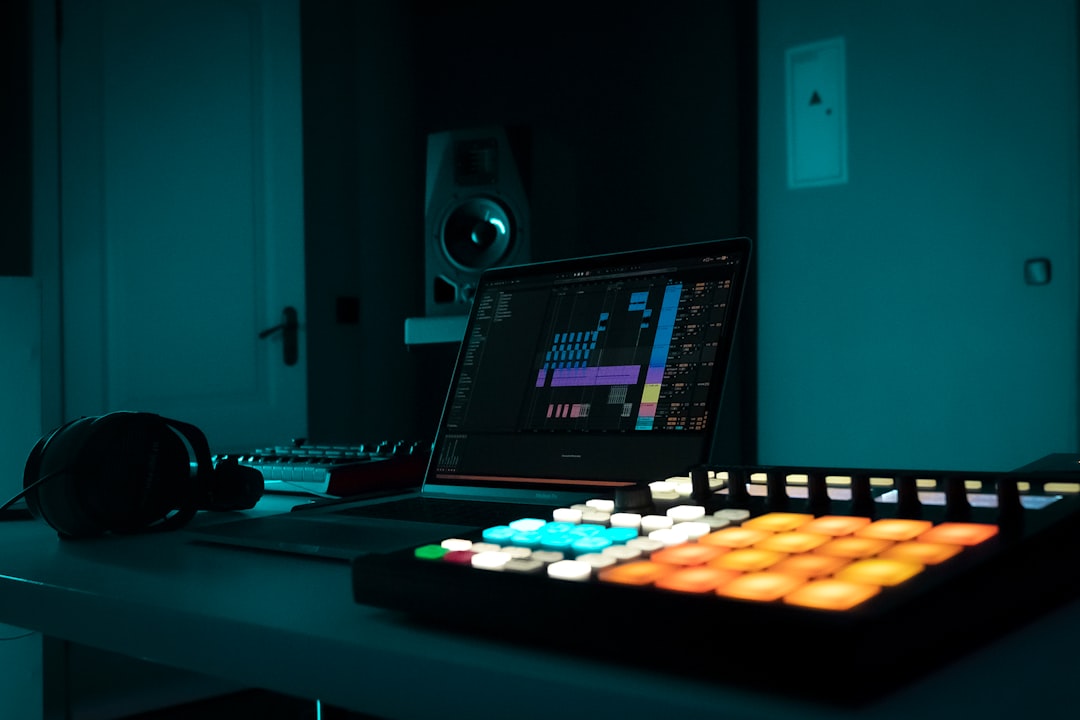Music production is an ever-evolving art form that has been transformed by technology time and again. The introduction of virtual instruments, digital audio workstations, and audio plugins led to a paradigm shift in the music production process. And now, the rise of artificial intelligence (AI) is set to change the game yet again.
With AI, musicians and producers can now access new tools and advanced technology that allows them to create music in ways that were once impossible. AI can serve as a creative assistant that supports and enhances human creativity while also pushing the boundaries of what is possible in music production.
As AI technology continues to develop, it has opened up new avenues for songwriting, sound design, mixing, and mastering that were previously unimaginable. The AI-powered tools and software can generate chords, melodies, and harmonies based on an artist’s creative input, providing a platform for unlimited musical inspiration.
For sound designing, AI can assist in creating distinct sounds that can add texture or depth to an artist’s compositions, enhancing the listening experience for audiences. Similarly, with mixing and mastering, AI can analyze songs, identify flaws, and provide feedback that helps artists fine-tune and perfect their projects.
However, with the introduction of AI in music production, there are also valid concerns over its ethics and limitations. While AI can augment creativity, some fear it could undermine the unique human touch that makes music so special.
As we look to the future, it is clear that AI will continue to play an increasingly significant role in music production. With AI, artists will have access to the tools they need to take their creative talents to new heights. Moreover, it is not only making the music creation process for professionals easier but also opens doors for aspiring musicians who have not formal training in music.
This blog post will explore the rise of AI in the music industry and the impact it has on various aspects of music production. In the next section, we will discuss how AI supports human creativity.
Musical Assistance: How AI Supports Human Creativity
Artificial Intelligence (AI) is a rapidly evolving field that has revolutionized numerous industries, including music. Today, AI is being utilized in music production as an innovative tool that supports human creativity rather than replacing it. AI has revolutionized music production by assisting musicians, producers, and engineers in their creative process, primarily through music generation, workflow efficiency, and creative exploration.
AI has become an integral tool in the music industry, allowing artists to overcome the initial stages of writer’s block by enabling the creation of original music compositions. Music generation algorithms have allowed AI to analyze previous compositions, identify patterns, and create music in a particular style, with the touch of a button. AI can also assist in the remixing of existing songs, generating new versions or adding a unique twist to an older piece.
Workflow efficiency in music production refers to the speed at which artists can create and refine their pieces. AI can aid in that by generating ideas and providing intelligent decision-making processes in real-time. For example, virtual instruments, mixing tools, and plug-ins have allowed musicians to work uninterrupted, recording every thought and idea as it comes to mind. These technologies provide artists with a more efficient workflow and a heightened ability to embrace their creative processes, take risks, and make decisions quickly.
AI has also enhanced the creative exploration of music by allowing artists to have access to a vast library of serendipitous sounds and harmonies that they may not have considered before. Creative exploration allows artists to experiment with new sounds, textures, and moods, which can lead to innovative creations. Music exploration mechanisms like intelligent music recommendation systems, genre classification, and mood recognition have allowed for creativity expansion and exploration in ways that were not feasible before the advent of AI.
Musicians can leverage AI’s powerful tools for sound design by generating and manipulating musical effects. AI can analyze an extensive range of elements ranging from vocal tone to musical instrumentation and then synthesize a sound effect that resonates with the unique style and voice of an artist. AI can produce a personalized variety of musical effects that produce a rich and dynamic soundscape for any composition.
In conclusion, AI has demonstrated the potential to compel innovation in the production of music. AI’s applications have ranged from music generation to workflow efficiency, creative exploration, and sound design. Through AI integration, human creativity in music production has become more efficient, expressive, and limitless. That said, it is important to acknowledge the limitations of AI in music production, including the ethical concerns and the need for human oversight. Nonetheless, AI’s potential to revolutionize music production is significant, and it is up to artists, producers, and engineers to maximize the benefits and leverage the technology’s potential in their respective creative processes.
In conclusion, AI has demonstrated the potential to compel innovation in the production of music.
The Future of Songwriting: Augmenting Composition with AI
As we continue to witness the rise of AI in music production, it’s becoming increasingly clear that the future of songwriting will depend on the ability of humans to augment their creativity by leveraging the power of artificial intelligence. With recent advancements in machine learning and natural language processing, AI is poised to transform the way we approach songwriting, helping to streamline the process and generate new ideas that may have been impossible before.
One of the most exciting possibilities for AI in songwriting is its ability to generate new melodies, chord progressions, and harmonies. By analyzing vast amounts of musical data, AI algorithms can identify patterns and generate musical motifs that can be used to inspire human songwriters. With the ability to learn and adapt over time, these algorithms can continue to evolve and generate increasingly complex musical ideas that complement and enhance the work of human composers.
Another area where AI is poised to revolutionize songwriting is in the field of lyric writing. With advanced natural language processing algorithms, AI can analyze vast amounts of text data to generate lyrics that are grammatically correct, emotionally resonant, and thematically relevant to the intended subject matter. By providing a starting point for human songwriters to build on, AI-generated lyrics can help to reduce the time and effort required to write a song, freeing up more time for the creative process.
Ultimately, the future of songwriting will depend on the ability of humans and AI to work collaboratively, each enhancing and augmenting the other’s strengths. With the advent of new tools and technologies that are specifically designed to support this type of collaboration, we can expect to see a new generation of music that is more diverse, innovative, and exciting than ever before. As we continue to explore the possibilities of AI in music production, we can only begin to imagine the countless ways in which it will transform the way we create and experience music.
The Future of Songwriting: Augmenting Composition with AI
As we continue to witness the rise of AI in music production, it’s becoming increasingly clear that the future of songwriting will depend on the ability of humans to augment their creativity by leveraging the power of artificial intelligence.
Sound Design: The Role of AI in Crafting Audio Effects
As the music industry evolves, so does the role of artificial intelligence, particularly when it comes to sound design. This is a crucial component of music production because it involves creating and manipulating sound effects such as reverb, delay, and distortion, among others. Traditionally, human sound designers have been responsible for creating these effects, but with advancements in AI technology, it is now possible to automate and augment this process.
One of the most significant advantages of using AI in sound design is the ability to access a vast library of sounds and effects. AI-powered software can analyze and categorize countless samples, enabling producers to quickly sift through and find the perfect sound. This eliminates the need for manual sound design and saves significant time and effort.
Furthermore, AI can enhance the creativity and productivity of human sound designers. Using machine learning algorithms, AI can analyze and learn from past sound design decisions to suggest new and relevant effects based on the project’s context. This can help sound designers to break through creative blocks and come up with fresh ideas.
Another benefit of using AI in sound design is the increased precision and accuracy. Sound design involves a lot of intricate and nuanced adjustments that are difficult for humans to replicate consistently. Using AI, these adjustments can be automated and optimized for the best possible output.
However, as with any technology, AI also comes with limitations that need to be addressed. For example, AI may not be able to replicate the musical intuition and human emotion that comes with sound design. So, while AI can suggest sound effects based on data analysis, it may not be able to capture the creative vision of the human sound designer.
In conclusion, the role of AI in sound design is a promising frontier in music production. It offers advantages such as access to vast sound libraries, increased precision, and enhanced creativity. However, it is also crucial to consider the limitations and potential drawbacks of AI in music production, and to ensure that it serves to support and augment the work of human artists and sound designers.
For example, AI may not be able to replicate the musical intuition and human emotion that comes with sound design.
Mixing and Mastering: Enhancing the Production Process with AI
Mixing and mastering are arguably the most critical stages of music production. It is where a song’s individual elements are carefully balanced to create a coherent final product. However, this process can be incredibly time-consuming and requires a great deal of precision.
This is where AI comes in. AI can help simplify the mixing and mastering process by automatically adjusting levels and EQ settings to ensure the final product sounds balanced and professional. Machine learning algorithms can analyze audio data and identify areas that need improvement, such as frequency imbalances or unwanted distortion.
Using AI to assist with the mixing and mastering process also saves time and money. Instead of spending hours manually tweaking each individual element, an AI-driven plugin can take care of these tasks in a matter of seconds.
Moreover, AI can enhance the creative potential of a producer, allowing them to experiment with new ideas and sounds. A producer can quickly A/B test different mixes and iterations without manually going through every element repeatedly. This could lead to more innovative compositions and productions that would otherwise be too time-consuming or impossible.
However, AI is not a replacement for human creativity and intuition. It is essential to note that AI is just another tool in a producer’s arsenal. While it can save time and enhance the creative process, it cannot replace the artistic decision-making process that goes into creating music. It is ultimately up to the producer and their skillset to determine the final product’s direction and sound.
Another potential drawback of using AI in mixing and mastering is that it can lead to homogenization of sound. If everyone uses the same AI-driven plugins, the final products could start sounding the same, removing the unique flavor that distinguishes each producer or artist.
It is also essential to consider the ethics surrounding the use of AI in music production. If AI continues to automate music production processes, it could potentially lead to job loss in the industry. We must be mindful of the impact that AI has on the industry and ensure that it does not harm or displace workers, particularly those in less developed countries involved in the supply chains of many music production tools.
A producer can quickly A/B test different mixes and iterations without manually going through every element repeatedly.
The Ethics and Limitations of AI’s Role in the Music Industry
As AI continues to make significant strides in the music industry, there are growing concerns about its ethical implications and limitations. While there’s no denying that AI has made significant contributions to music production, it’s essential to weigh both the benefits and potential drawbacks of its use.
One of the primary concerns about AI in music production is the threat it poses to employment opportunities in the industry. As AI technologies continue to evolve, there will be an increasing need for fewer human contributions. This may lead to a reduction in the number of jobs available to artists and producers, which could have a significant impact on their livelihoods.
Another significant concern of AI in the music production process is copyright infringement. With AI able to generate music with minimal human input, there is a risk of it producing tunes too similar to other copyrighted works unintentionally. The question arises of who should be held responsible for the infringement, AI or the producer using the software.
Furthermore, there’s a risk that AI-produced music may lack the same emotional connection and depth as human-created compositions. This lack of connection may lead to a lack of diversity in the music industry, with a similar sound dominating the scene.
Moreover, there is also the question of who owns the rights to AI-generated music. As AI continues to evolve, there may be a point where it becomes entirely responsible for the composition and production of music. In such a scenario, it would be crucial to determine the ownership and distribution of the music rights.
It is also important to consider AI’s limitations when it comes to music production. While AI has made remarkable progress in generating music, it still lacks the ability to understand the complexities of human emotions and creativity. AI technology still relies on databases and statistical models, which may limit its ability to be truly creative and innovative.
In conclusion, while AI has revolutionized the music industry, its use must be well-considered, and the potential limitations and ethical implications must be evaluated. As the music industry continues to evolve, it’s important to find a balance between human creativity and AI support, so both can complement each other in the most positive way.
Moreover, there is also the question of who owns the rights to AI-generated music.
Conclusion: The Potential for AI to Revolutionize Music Production
As seen in the previous sections, AI has rapidly advanced in recent years and has made its way into the music industry. From musical assistance, songwriting, sound design, mixing and mastering, it has proven to be a valuable tool for musicians and producers alike.
AI has allowed for more creative exploration and taken the limits off of what is possible in music production. It has given musicians the ability to create sounds and compositions they may have never thought possible. In addition, AI has also made music production more accessible to those who may not have had the resources or knowledge to produce music previously.
Furthermore, AI has the potential to improve productivity and efficiency in the music industry. Time-consuming tasks like mixing and mastering can be automated, allowing for more time to focus on creativity and experimentation.
However, it is important to consider the ethical implications and limitations of AI in the music industry. While AI may assist in the creative process, it cannot replace the human element of emotion and personal experience that goes into creating music. Additionally, AI’s potential to automate jobs in the music industry raises concerns about job security for human workers.
Overall, while there are limitations and ethical considerations to be made, the potential for AI to revolutionize music production is immense. As technology continues to advance, the music industry will undoubtedly see a transformative shift in how music is created and produced.
